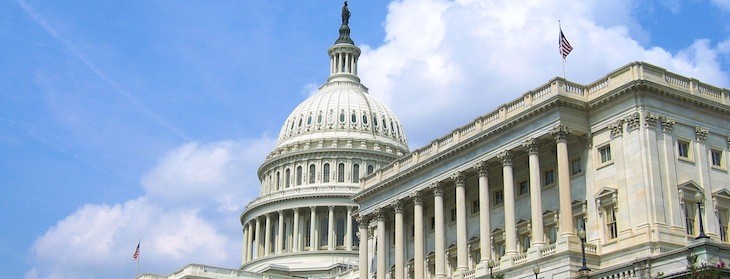Byrd Flip: U.S. House must revote on Republican’s $1.5 trillion tax code overhaul
by December 19, 2017 5:55 pm 583 views

U.S. House members will on Wednesday (Dec.. 20) have to recast their votes on the $1.5 trillion tax cut bill after Republican leaders and rank-and-file members prematurely celebrated a pre-Christmas gift to President Donald Trump and his first major legislative victory since entering the White House nearly a year ago.
Earlier Tuesday, by a vote 227-203, the U.S. House passed the Tax Cuts and Jobs Act of 2017, marking the first time the nation’s tax code has been overhauled since former President Ronald Reagan was in office. All four of Arkansas’ congressmen voted in support of House Resolution I, which was approved largely along party lines.
However, the U.S. House must now revote on the legislation because of fears the so-called “Byrd rule” may be invoked because several provisions of the Congressional Budget Act were not considered. Under the Byrd rule, the Senate is prohibited from considering extraneous matter as part of a reconciliation bill or resolution or conference report.
The massive bill came to the House floor after a House-Senate conference committee reached an agreement four days ago on a compromise version of the 500-page tax reform plan that will make sweeping changes to corporate and international tax rules, along with tax cuts for middle-class wage earners.
The Byrd rule sets forth six tests for matters in Congress to be considered extraneously. After Tuesday’s House vote, the Senate parliamentarian alerted Congressional leaders that there were three provisions in H.R. I that violated the quirky Senate budget rule, including the bill’s “Tax Cut and Jobs” title, a proposal that would allow people to use 529 college savings for homeschool expenses, and another measure that exempts colleges with less than 500 tuition-paying students from paying tax endowments.
The Byrd rule is enforced when a U.S. senator raises a point of order during consideration of a reconciliation bill or conference report. If the point of order is sustained, the offending title, provision or amendment is deemed stricken unless its proponent can muster two thirds, or 60 votes, to waive the rule.
The U.S. Senate is still scheduled to take up the House-Senate compromise bill on Tuesday evening, but House Speaker Paul Ryan, R-Wisc., has scheduled another vote on Wednesday with similar results expected despite the embarrassing misstep. U.S. Sens. John Boozman and Tom Cotton, both Republican, have said they plan to vote for the Senate’s version of the committee compromise after an earlier version was approved nearly three weeks ago by the upper chamber in a party line vote of 52-48.
According to H.R. I details, the legislation will cut the corporate income tax rate from 39% to 21%, effective at the beginning of 2018. It also provides for a 20% deduction for qualified business income of so-called pass-through businesses, such as sole proprietorships, subchapter S corporations and certain partnerships, beginning in 2018 and expiring after 2025.
Other benefits for the business sector include the elimination of the corporate alternative minimum tax (AMT) and a host of international business tax provisions aimed at encouraging U.S.-based companies to ramp up investment in U.S. jobs and wages.
According to analysis by Congress’ Joint Committee on Taxation, middle-class taxpayers would get about $61 billion in tax cuts in 2019 under the bill. However, those same wage earners would see their individual taxes rise by the time the tax cut expires in 2027.
Based on different views from conservative, left-leaning and bipartisan think tanks, the Republican tax plan could leave U.S. budget coffers with a deficit of up $1.5 trillion over the next decade, depending on how much growth the corporate tax cuts produce. According to a one-page summary of the tax cut package by the Treasury Department, the tax reform plan projects U.S. economic growth would increase by an average of 0.8% over the next 10 years and reduce the cost of the bill by $408 billion.
Following the first House vote, Arkansas’ four Republican House members and other GOP lawmakers cheered the passage of the historic tax reform package on Tuesday afternoon, many adopting a common theme that the legislation was a Christmas gift to blue-collar, middle-class American taxpayers.
“For the first time in over three decades, Congress has voted to fundamentally reform our tax code. This bill allows hardworking Americans to keep more of their paycheck, creates jobs and increases wages by making American businesses competitive again, and simplifies a code that has become riddled with loopholes,” said Rep. Steve Womack, R-Rogers. “I commend the work of the Ways and Means Committee and the House majority for keeping its promise to America. Merry Christmas!”
By Wednesday, Womack’s comments and statements by other members of Arkansas’ congressional delegation – and Democratic candidates they will face in November – may bear repeating.
